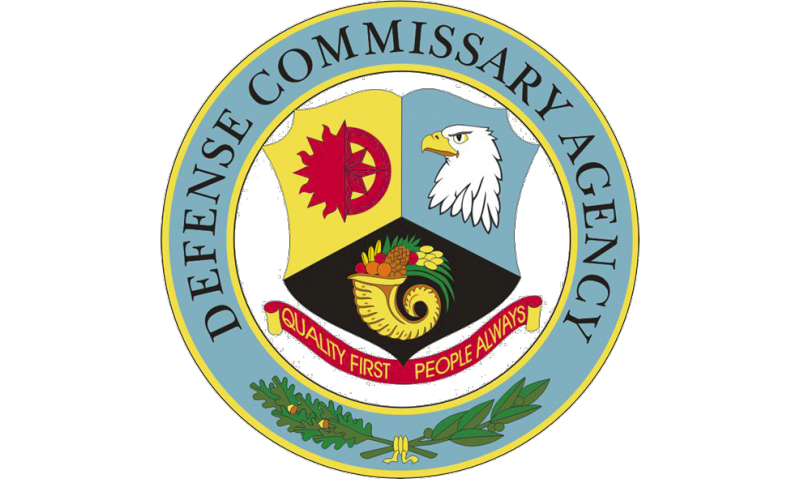
Defense Commissary Agency expands eligibility, offers eligible veterans a path to economic and food security.
The Defense Commissary Agency (DeCA) headquartered in Fort Lee, Va., is responsible for delivering a vital benefit to servicemembers and eligible veterans all at home and abroad. DeCA provides eligible patrons with a service that enhances quality of life for them and their families by enabling them to purchase groceries and other household goods tax free, plus a 5% surcharge which covers the cost of modernizing and building new commissaries. This valuable benefit can save patrons thousands of dollars annually when compared to commercial prices.
With 236 stores in 13 countries, DeCA employs more than 13,000 employees, of which, more than 32% are military spouses. Nearly 65% of DeCA’s total work force is affiliated with the military. One of the agency’s efforts is to provide military families with a crucial pathway to eliminating food insecurity. Commissaries provide nearly a 24% savings compared to local market averages. For a struggling family, this savings could be the difference in knowing when they will have their next meal.
Marine Sgt. Maj. Michael R. Saucedo, who serves as the senior enlisted adviser to the agency’s director, noted that another way DeCA supports its patrons is the more recent addition of health and wellness services. DeCA launched its dietitian-approved fueling station program at 174 commissaries in 2021. These provide on-the-go nutritious meals that offer an alternative to fast food. The agency also offers nutrition guides to help patrons make healthy choices.
A dietitian-approved dinner menu plan includes weekly shopping lists for an entire month of family meals, with links to recipes on the commissary website.
Many veterans eligible for this benefit are unaware it exists, and DeCA is working hard to fix this.
The Department of Defense (DoD) expanded eligibility for commissary shopping privileges as part of the Purple Heart and Disabled Veterans Equal Access Act that was passed as part of the John S. McCain National Defense Authorization Act for fiscal year 2019. Now, all veterans with a service-connected disability, veterans who are Purple Heart recipients, veterans who are former prisoners of war, and individuals approved and designated as the primary family caregivers of eligible veterans under the Department of Veterans Affairs Program of Comprehensive Assistance for Family caregivers.
Here are some basic questions and answers about the program:
Question: Which forms of ID are required for veteran with a service-connected disability to get installation access?
Answer: In January 2020, DoD announced the rules for newly eligible veterans and caregivers to gain base access to take advantage of the Commissary, Exchange, and Morale, Welfare, and Recreation (MWR) facilities. Veterans with a service-connected disability will need a Veterans Health Identification Card (VHIC) to be able to gain access to the installation and use the commissary. The VHIC must state the veteran’s eligibility. For example, the card must have a designation for Purple Heart, Former POW, or service-connected disability indicated on the card.
Question: How do veterans receive their VHIC card?
Answer: First, veterans will need to be enrolled in VA health care. Once a veteran receives their welcome call, they will need to contact their nearest VA medical center and ask to speak with the enrollment coordinator. The coordinator will help the veteran arrange to get their picture taken for their new VHIC card or the picture can be taken at their next scheduled VA health-care appointment. After the VA takes the veterans picture, the VHIC card will be processed and sent to the veteran by mail.
Question: What happens at the gate?
Answer: The newly eligible veteran will have to pass an initial basic, on-the-spot background check at the installation visitor control center during their first visit to gain access and then an automated check each subsequent visit. Depending on the type of installation, these VHIC-carrying veterans will be able to enroll in recurring access, which lets them bypass the visitor control center and enter through the gates. A spouse or anyone accompanying them might also be able to enroll in this recurring access if the guest has an identification that supports it. Veterans or caregivers with felony convictions, felony arrest warrants or derogatory information related to criminal history or terrorism will be prohibited from entering.
- Veterans Benefits

